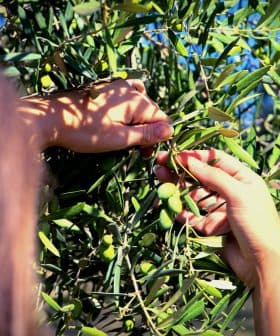Consumers Reject Extra Virgin Olive Oil Bitterness, Study Finds
Consumers generally prefer extra virgin olive oil with a non-bitter taste profile, which significantly influences their purchasing decisions. The study found that consumers tend to perceive bitterness more intensely than experts and that this preference for non-bitter EVOO can impact the perceived value by $1.27 per liter.
Most consumers do not like bitterness in their extra virgin olive oil, and they perceive the intensity of that taste much more than experts do, according to a new study.
The preference for a non-bitter taste profile has a large impact on how buyers choose an EVOO.
The study, conducted by a team of researchers from the University of Naples and published in the International Journal on Food System Dynamics, assessed the way in which these preferences affect EVOO sales. In a supermarket, consumers favor oils leaning toward a neutral or sweet note.
Researchers compared the score that experts and consumers assigned to the bitterness of eight of the most popular EVOOs. While previous studies hinted at a general preference towards neutral-tasting olive oils, the new research also analyzed the way in which consumers actually perceive and evaluate bitterness.
The study found that bitterness in EVOO leads to a negative perception of the product itself among consumers. While bitterness is characteristic of true and fresh extra virgin olive oil, not a single consumer in the study showed a preference for bitter-tasting samples.
“Consumers systematically tend to overestimate the perception of bitterness compared to experts,” the researchers wrote.
The study underlined that consumers’ choices depend on several well-known factors, such as the EVOO brand or the price per bottle.
Customers can make quick decisions when they find a familiar, trusted brand on the shelf, but when they don’t find their preferred brand, they look for product attributes that do not always indicate quality, such as the location of the producer.
“The most preferred oil attributes were taste, Italian origin and the organic production method,” the study noted
The preference for non-bitter EVOO creates a burden on the perceived value in the amount of $1.27 per liter, the study found. This “bitterness negative value” is one of the criteria consumers use to make their final selection.
While consumers tend to prefer neutral-tasting olive oils, many attribute a special quality to sweet-tasting oils.
The study was conducted on a sample of 196 people. On average, the participants were under 40 years of age, members of four-person families, and had completed higher education. Their households consumed 3.4 liters of extra virgin olive oil per month and they answered researchers’ questions after buying at least one bottle of EVOO.
The research team noted that further studies should be conducted on larger and more representative samples of the population.
An industry member suggested that the study showed that consumers need to be educated about olive oil.
“Bitterness is a known sign of the presence of phenolic compounds in extra virgin olive oil,” an Italian farmer and olive grower, Angelo DalCima, told Olive Oil Times. “You do not want it to play a dominating role in your EVOO, but when you get the first taste of your newly produced oil, you are happy to feel that bitter note that reminds you of the fresh olive. It is reassuring,”
“I think we should do more to let consumers know more facts about our EVOOs.”









